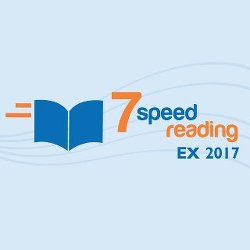
If you know more about the topic being discussed while reading, you can read faster with greater comprehension since your mind will be better able to parse together the meaning of what you’re reading.Ĭonsider one experiment which tested students on a text describing a soccer game. One of the big constraints on reading speed is simply content knowledge. In a recent fascinating book, The Reading Mind, cognitive scientist Daniel Willingham deconstructs what we know about the cognitive processes involved in reading, to try to give a sketch of what allows people to read, and what obstacles get in the way. Instead, it is a skill that we acquired, culturally, by co-opting other developed cognitive strategies (such as image recognition and linguistic parsing).Īs a result, although all normal children will learn language without intervention, literacy is something that doesn’t come automatically to us as a species.

Unlike vision, hearing or language, it is not a skill hardwired into our brains. In other words, although specific reading techniques (like pointers and eliminating subvocalization) probably don’t help too much to read faster without comprehension loss, simply reading a lot more is a great strategy to become a faster reader. One thing I did discover from my research, however, was that there is a reliable way to improve your reading speed and increase your reading comprehension: read a lot more. That is to say, speed reading is more like controlled skimming. A few years after that, I decided to dig into the research and found that, while speed reading isn’t entirely without merit, it tends to increase speeds at a big cost to comprehension.

I had read a book teaching it, and noticed it helped me read almost twice as fast.Ī few years after, however, I mostly stopped using the technique I had learned and went back to the normal approach to reading. I’ve written before about how I first got interested in speed reading.


 0 kommentar(er)
0 kommentar(er)
